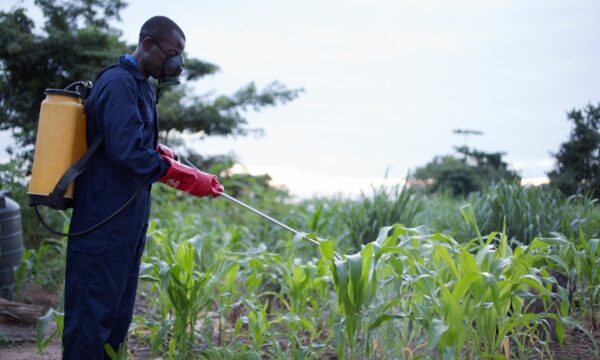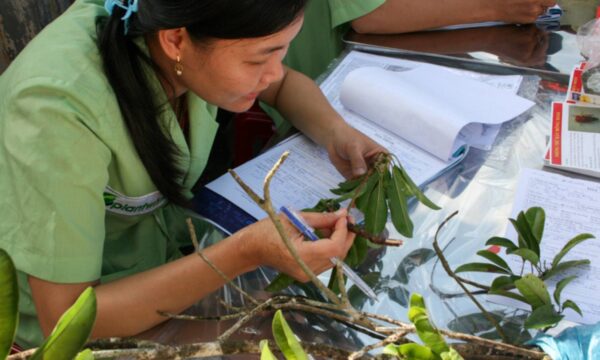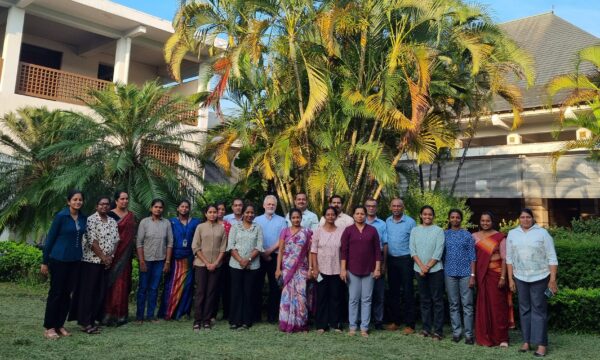Pesticide overuse and misuse pose a risk to farmers, consumers, and the environment. Chemical pest control is a major source of pollution, leading to water and soil contamination. Moreover, pesticides can enter the food chain through residues on crops, jeopardising food safety.
Judicious pesticide use
As such, PlantwisePlus is collaborating with the County Government of Nakuru and the Centre for Behaviour Change and Communication (CBCC) on a major new initiative. Together, they aim to empower farmers in Nakuru County to use pesticides more judiciously to reduce their negative effects on human and animal health and the environment.

Recently, key stakeholders in the agriculture sector came together for a two-day workshop to discuss implementing more sustainable approaches to crop production. Attendees actively participated in the event, which sought to form a strategy based on social and behavioural change toward pesticide risk reduction. They discussed key audiences and messages, as well as the channels and most appropriate formats for communications.
More sustainable methods of pest control
Small-scale farmers are particularly vulnerable when it comes to pesticide use. Crop pests and diseases, exacerbated by climate change and increased human movement globally, threaten food production, food security, and farmers’ livelihoods. Therefore, farmers must know when and how to use pesticides, as well as alternative, more sustainable methods of pest control.
Last year, CABI and the County Government of Nakuru conducted field visits in the region to better understand the issues around pesticide use. The survey findings showed that small-scale farmers, in their quest to maximise yields, often resort to irresponsible use of pesticides to mitigate the damaging effects of pests and diseases.
Pesticide risks
Farmers are not unaware of the risks. Communities often share information on the responsible use of pesticides, however, farmers do not always follow the desired good practices. The behaviour change campaign aims to provide farmers with the information and technology they need to make better decisions when it comes to pesticide use. It will also provide farmers with information on, safer and more affordable pesticide alternatives, such as biocontrol.

Technology is likely to play a key role in the behaviour change campaign. PlantwisePlus has developed a range of intuitive decision support tools that enable advisors and farmers to make more informed choices in their crop management. Workshop participants were particularly interested in the Crop Sprayer mobile app. This free-to-download Android app is simple to use and helps farmers calculate the amount of pesticide needed when treating crops. As a result, it reduces the risk of overuse of chemicals and toxic exposure.
PlantwisePlus
The activities in Nakuru were undertaken as part of the PlantwisePlus programme. PlantwisePlus is working to increase the supply of safer food through initiatives driven by women and youth to meet the growing consumer demand. However, farmers need support and solutions if they are to turn to safer, more sustainable farming practices. Activities, such as the behaviour change campaign in Nakuru, raise awareness of the hazards of inappropriate pesticide use among farmers, advisory service providers, and end consumers, all of whom play an important role in the production of safer and more nutritious food.
Related News & Blogs
How do pest risk registers address the spread of plant pests in Africa?
Pest risk registers can help to solve problems in agriculture, addressing the growing global threat of plant pests. Moreover, changing weather patterns, led by rising temperatures, are causing them to reproduce faster and expand into new regions. In ad…
10 July 2025




